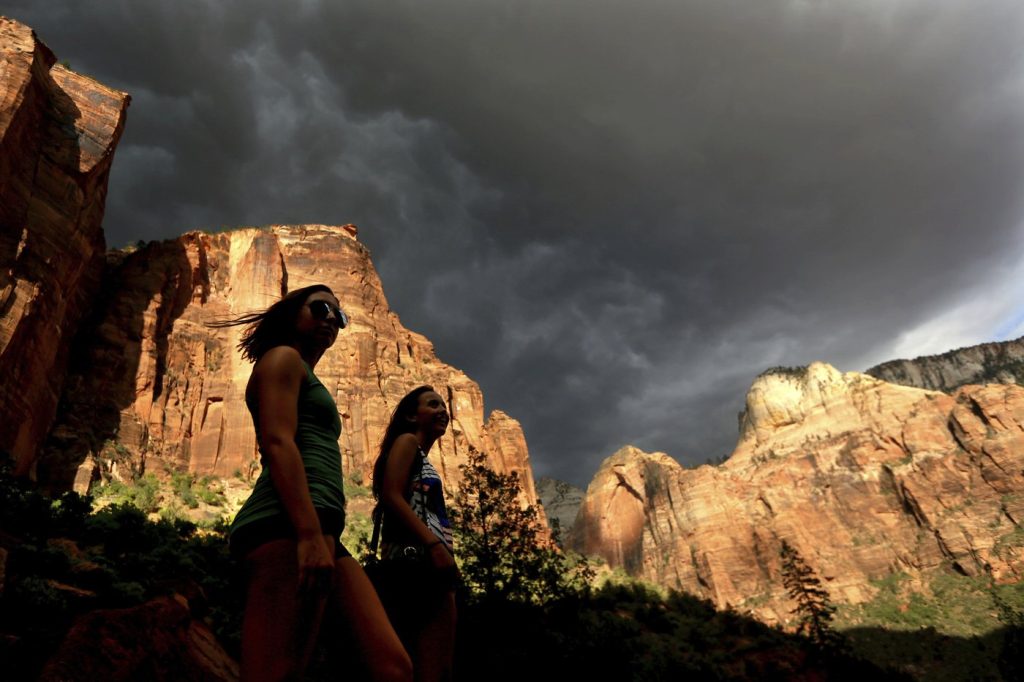BILLINGS, Mont. (AP) — Congressional Republicans have introduced a plan to sell approximately 460,000 acres of federal land, mainly in Nevada and Utah. This initiative aims to generate revenue and alleviate growth pressures in rapidly expanding Western cities. However, critics are skeptical about the lack of clarity regarding the plan's details and express concerns that it might serve as a giveaway to developers and mining companies, ultimately failing to address the housing crisis that many regions are currently experiencing.
The legislation, passed by the House Natural Resources Committee, aligns with the Trump administration's perspective of public lands as valuable assets for development rather than areas to be preserved. This approach reignites an ongoing debate over who should control federal lands within the West, where nearly half of the land is federally owned, and urban areas are increasingly demanding housing, water, and other essential resources.
The GOP’s proposal is facing strong opposition from Democrats and conservationists, who argue that it sets a dangerous precedent that could lead to the sale of lands in other states. Steve Bloch from the Southern Utah Wilderness Alliance emphasized the potential ripple effect, stating, “If it can happen in Utah, if it can happen in Nevada, it’s not going to stay here. It’s going to spread.” Some Republicans are also voicing dissent, indicating a deepening political rift as the budget process continues.
Much of the proposed land for sale is located in Nevada, particularly in areas surrounding key cities such as Reno, Las Vegas, and the burgeoning community of Fernley. Fernley City Manager Benjamin Marchant expressed optimism about the possibility of acquiring 12,000 acres of federal land, noting that the city has tripled in size since its incorporation in 2001 and is projected to double again within the next decade. He argues that the ability to engage in projects is hindered by the presence of federal ownership, stating, “We can’t sell what we don’t own, and this is the first step.”
Additional properties earmarked for sale are located farther from developed areas, including sites adjacent to Zion National Park and lands belonging to Indigenous tribes, such as the Paiute Indian Tribe reservation in Utah and the Pyramid Lake Paiute reservation in Nevada. Mathilda Miller from Native Voters Alliance Nevada criticized the proposal, arguing that it impedes tribal growth and offers little chance for reclaiming historically significant land. “They can’t reclaim the land that was stolen from their tribe, and it brings development right up to their doorstep,” she stated.
The legislation also includes approximately 100,000 acres in western Nevada’s rural Pershing County, which could be sold to private companies engaged in mining. According to Rep. Mark Amodei’s office, the bill mandates land exchanges to ensure that federal parcels are swapped for an equivalent amount of non-federal land.
Many communities impacted by the proposed land sales face significant challenges in expansion, as federal land constitutes 80% of Nevada and 63% of Utah. In contrast, several Midwestern and Eastern states have federal land comprising 1% or less of their total area. The presence of interspersed public and private properties creates complications for development projects, often resulting in a ‘checkerboard’ pattern.
Housing advocates caution that not all federal land is suitable for affordable housing. Generally, parcels situated further from densely populated areas require extensive infrastructure, including roads, sewage systems, and public transportation. Vicki Been from New York University's Furman Center for Real Estate and Urban Policy highlighted the costs associated with developing such lands, explaining, “It’s a costly way to go because of the infrastructure needs, because of the time it will take.”
The Republican proposal aims to coordinate with local municipalities to identify suitable lands for development. However, some fear that there are insufficient guarantees that the land will be allocated for affordable housing projects. Tara Rollins, executive director of the Utah Housing Coalition, remarked, “The devil’s in the details. It could just be a land grab. There just needs to be a lot of checks and balances.”
The push for a significant transfer of federal lands to local or private entities reflects a long-standing desire among many Western conservatives. Last year, Republican officials in Utah attempted to assert control over substantial federal lands through a lawsuit, which was ultimately rejected by the U.S. Supreme Court, despite backing from twelve other states.
Despite the ongoing contention surrounding public land sales, notable voices within the GOP, such as Rep. Ryan Zinke of Montana and Sen. Steve Daines, have expressed opposition to these measures. The proposed legislation includes the sale of about 10,000 acres in two Utah counties and emphasizes that efforts will avoid ecologically sensitive areas while addressing housing and water demands through the provision of additional space. Smaller land sales are already a standard practice for the Bureau of Land Management under the Interior Department.
As discussions continue, the fate of these federal lands hangs in the balance, with advocates from various sides monitoring developments closely.










